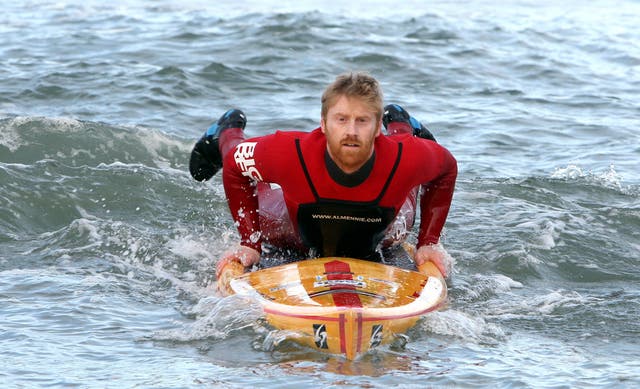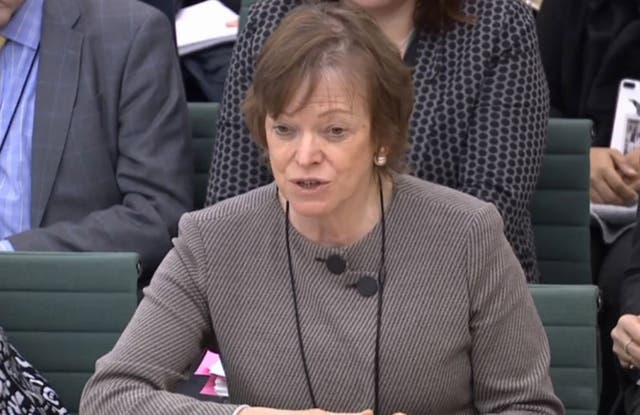
Stormont has been urged to update regulations to protect those swimming in Northern Ireland’s lakes and at the coast.
The Department of Agriculture, Environment and Rural Affairs (Daera) has been handed 11 recommendations to update the Bathing Water NI Regulations.
It comes as a report published by the Office for Environmental Protection (OEP) concluded the public could be better protected.
It has found that the regulatory regime is outdated as the regulatory requirements have not kept pace with the changing ways in which society uses rivers, lakes and coastal waters for recreation.

It says that the regulations focus on swimming, and any future review should consider expanding that to include activities such as surfing, paddle boarding and windsurfing.
It also points out that the regulations focus on a fixed bathing season, which does not reflect the year-round nature of the activities.
Any review has been recommended to consider the approach to sampling water quality, with a view to increasing the number of sample points on long stretches of water and being more open about monitoring decisions.
A separate and recent OEP report on a related topic, the implementation of the Water Framework Directive NI Regulations found that progress is not on track to meet the environmental objectives set for most identified waters.
This is because of a range of factors including a lack of clear objectives, or specific and certain measures to achieve those objectives.
Dame Glenys Stacey, chairwoman of the OEP, said the Bathing Water NI Regulations have fallen out of step with the needs of today.
“With more people participating in outdoor water pursuits, it is ever more necessary to make sure that enjoying Northern Ireland’s waters is not just fun, but good for us, rather than a risk to our health and wellbeing,” she said.

“We have taken an in-depth look at the Bathing Water NI Regulations and found that they have fallen out of step with the needs of today.
“They originate from developments in the 1970s and 1980s and have not kept pace with the evolving ways in which waters are now used for recreational purposes, or with public expectations.
“It is fair to say that the regulations have led to significant improvements in bathing water quality since they were introduced around three decades ago, and we can see that important elements of the regulations – monitoring, classification and reporting requirements – are being implemented.
“Nevertheless, the lack of overall improvement in water quality observed in recent years, combined with a number of bathing water sites failing to achieve sufficient or better standards, is a cause for concern and has been widely reported.”
She added: “For the public to be better protected and enjoy the significant health and wellbeing advantages of being active, closer to nature and more connected to their communities, the regulatory regime needs to be more expansive and more effective.”
Responding, Daera minister Andrew Muir welcomed findings that Bathing Water Regulations are being implemented fully and improvements have been made.
He said some of the recommendations made are already under consideration such as the extension of the current bathing season, and the department is currently collecting data to inform future policy direction.
“I welcome the discussion around these matters and the renewed focus of so many on improving water quality,” he said.
“I agree there is more we can do together to improve bathing water quality, OEP report is a useful and constructive contribution.
“We can only protect bathing waters and public health by making sure that appropriate measures are implemented in catchments.
“I recognise that a source to sea approach is critical and will work across all sectors to secure improvements in water quality.”


Why are you making commenting on The National only available to subscribers?
We know there are thousands of National readers who want to debate, argue and go back and forth in the comments section of our stories. We’ve got the most informed readers in Scotland, asking each other the big questions about the future of our country.
Unfortunately, though, these important debates are being spoiled by a vocal minority of trolls who aren’t really interested in the issues, try to derail the conversations, register under fake names, and post vile abuse.
So that’s why we’ve decided to make the ability to comment only available to our paying subscribers. That way, all the trolls who post abuse on our website will have to pay if they want to join the debate – and risk a permanent ban from the account that they subscribe with.
The conversation will go back to what it should be about – people who care passionately about the issues, but disagree constructively on what we should do about them. Let’s get that debate started!
Callum Baird, Editor of The National
Comments: Our rules
We want our comments to be a lively and valuable part of our community - a place where readers can debate and engage with the most important local issues. The ability to comment on our stories is a privilege, not a right, however, and that privilege may be withdrawn if it is abused or misused.
Please report any comments that break our rules.
Read the rules here